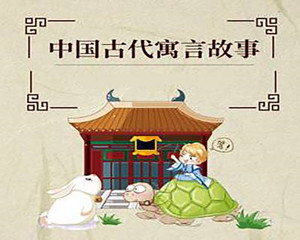古代寓言原是民间口头创作,文学体裁的一种。含有讽喻或明显教训意义的故事。它的结构简短。主人公可以是人,可以是动物,也可以是无生物。多借用比喻手法,使富有教训意义的主题或深刻的道理在简单的故事中体现,而还需要自己去理解,思考,这就是和西方寓言的不同之处。

《古代寓言·将军的错觉》
一阃师,寒天夜宴,炽炭烧烛,引满浮白,酒后耳热,叹曰:“今年天气不正,当寒而暖。”
兵卒在旁跪禀曰:“较似小人们立处,天气觉正。”
——《雪涛小书》
Abnormal Weather
A general was drinking in the camp in a cold winter's night. Candles were lighted and coal was burning well in the stove. After a few bowlfuls of wine, beads of sweat appeared on his forehead.
"Extraordinary weather we're having this year!" said the general. "When it should be old, it's warm."
His words were heard by his orderly, who was standing outside in the cold. Entering the tent, he knelt respectfully before the general and said, "The weather seems normal enough where your servant was standing, sir."
Notes of Xue Tao
(杨宪益、戴乃迭 译)
更多精品翻译素材,敬请关注可可英语。











